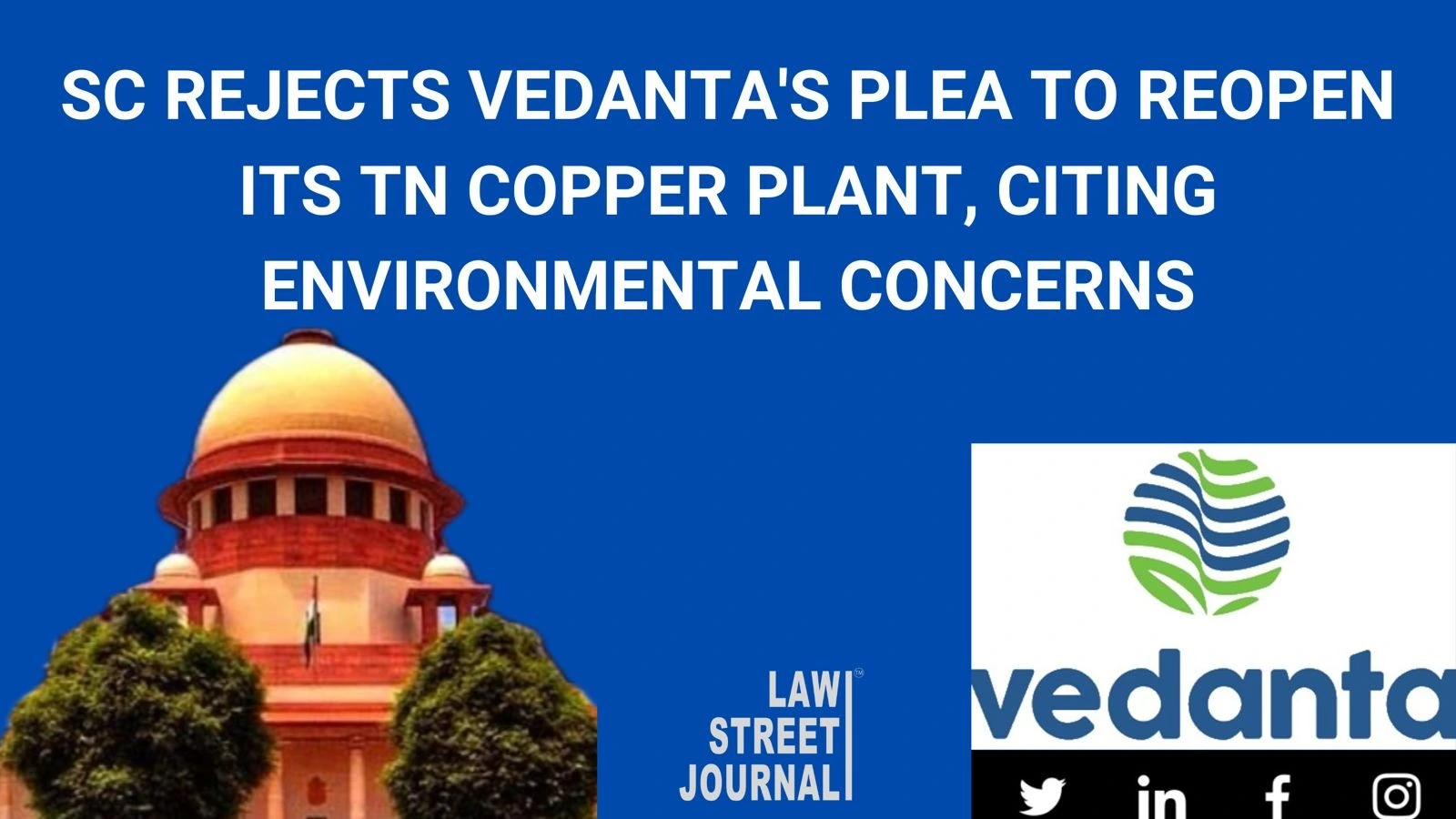NEW DELHI: The Supreme Court on Thursday rejected plea by Coporate giant Vedanta against the closure of its copper smelting plant in 2018 in Tamil Nadus Thoothukudi over alleged violation of environmental norms, saying health and welfare of the residents are of utmost concern.
A bench of Chief Justice of India D Y Chandrachud and Justices J B Pardiwala and Manoj Misra said the closure of industry undoubtedly not a matter of first choice, however, the repeated nature of breaches, coupled with the severity of the violations would in this analysis have left neither the statutory authorities nor the high court to take any other view unless they were to be oblivious of their plain duty.
In 2018, the Tamil Nadu Pollution Control Board (TNPCB) ordered the closure of the Sterlite Plant after massive protests by locals, social and environmental activists who claimed that the facility was causing widespread and severe pollution, leading to the spread of serious diseases among locals. The decision of the Tamil Nadu Pollution Control Board was upheld by the Madras High Court in August 2020.
Pronouncing order in the matter after hearing Vedanta's plea, the bench said the court has to be mindful of well settled principles, including the principles of sustainable development, the polluter pays principles and public trust doctrine.
We have heard these proceedings for several days and after careful evaluation of factual and legal material, we have come to the conclusion that the special leave petition by the industrial unit does not warrant interference, the special leave petition stands dismissed," the bench said.
The court said the health and welfare of the residents of the area is again a matter of utmost concern and in the ultimate analysis, the state government is responsible for it.
The court also said that it is conscious of the fact that the unit has been contributing to the productive assets of the nation and providing employment and revenue in the area.
Equally, while these aspects have undoubted relevance, the court has to be mindful of other well settled principles, including the principles of sustainable development, the polluter pays principles and public trust doctrine, the bench said.
The court also dismissed the appeals filed by the Tamil Nadu Pollution Control Board questioning the observations made by the Madras High Court against it.
We are of view that high court was justified in making observations in regard to lack of alacrity of pollution control board in discharging its duties, the bench said.
In its order, the bench said the statutory authorities have entered multiple findings of facts over which the High Court has refused to interfere in the exercise of its judicial review power.
"We find no serious error in the approach of the High Court has been shown by the petitioner to warrant an interference under Article 136," the bench said.

















